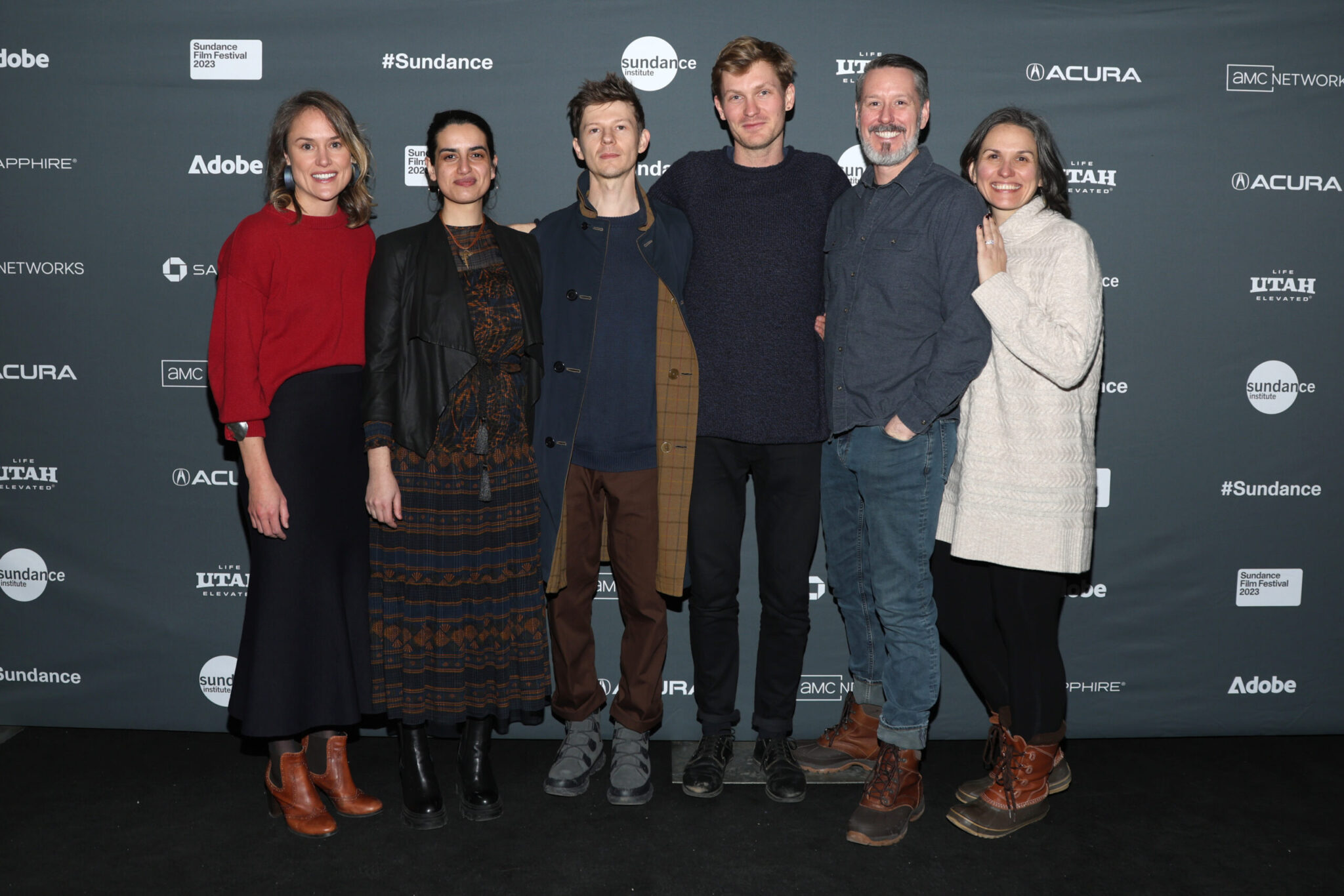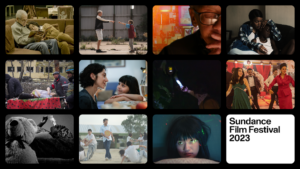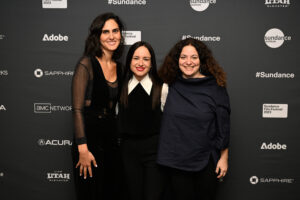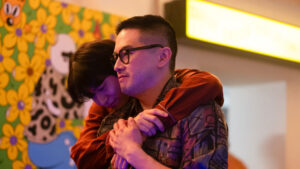PARK CITY, UTAH – JANUARY 21: (L–R) Ashleigh McArthur, Margaret Engel, Kellen Quinn, Luke Lorentzen, David Fleenor and Amy Strano attend the 2023 Sundance Film Festival premiere “A Still Small Voice” at Prospector Square Theatre on January 21, 2023 in Park City, Utah. (Photo by Steven Simione/Getty Images)
By Aliese Muhonen
“There’s an old adage,” Rev. David Fleenor tells his cohort of hospital chaplain trainees: “Don’t just stand there, do something.” As chaplains, he says, “We flip that. Don’t just do something, stand there. Or be there. Because there’s connection and healing in that.”
Margaret “Mati” Engel is one of the trainees, trying to “be there” and provide spiritual and emotional support to patients during a yearlong residency at Mount Sinai Hospital in New York City in 2020.
And though Engel and the other chaplain-hopefuls are passionate about their work, the emotional toll of their job is not to be underestimated, especially during a pandemic. The topics of mortality, faith, and purpose weigh on them as they minister to the sick, grieving, and dying. Dealing with pain — both physical and psychological, the patients’ and their own — is a greater burden than anticipated.
Emmy-winning and Oscar-shortlisted director Luke Lorentzen (Midnight Family, 2019 Sundance Film Festival) follows Mati and her colleagues’ compelling journeys in the thought-provoking documentary A Still Small Voice, which premiered January 21 in the U.S. Documentary Competition.
Like its subjects, the film’s title is layered in meaning. It’s taken from the musings of a terminal cancer patient, who hears “a still, small voice” that helps guide her, but is also a word-for-word description of a manifestation of God from 1 Kings 19:12 in the Bible.
Viewers get a peek into the chaplains’ oft-misunderstood world, in which they navigate the most heart-wrenching scenarios in healthcare with a variety of religious and spiritual beliefs, custom-tailored for each patient. It’s impossible to leave the film without an immense appreciation for their training and skill set. (Or to leave with dry eyes. Bring tissues.)
Audiences may wonder how Lorentzen got the chaplains’ and patients’ permission to film them.
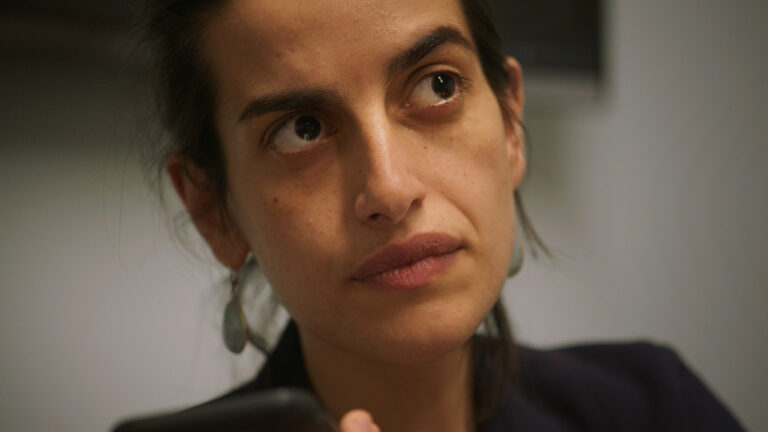
“I put him through hell,” Engel says, triggering audience laughter. She and Lorentzen had a lot of back and forth to determine how to film ethically, so that patients had a thorough understanding of consent and the power to revoke footage at the end of filming. Ultimately, about a dozen of Mati’s patients agreed to be filmed in the year.
“It’s important work to be seen,” she says. “It’s work that’s hidden, and emotional labor that’s hidden, and so ultimately that was the greater vision, but it took a lot of thought and checks and balances.”
While the film does dispel some myths — there’s no preaching or attempts at religious conversion, for example — its greatest impact lies in its depiction of the chaplains’ emotional and psychological burdens, mirroring the need for increased mental and self-care for medical workers.
Though the residency program requires weekly emotional check-ins, Mati and virtually everyone in the program — even the supervisors like Fleenor — wrestle with the heaviness of their work. Mati in particular struggles with managing emotional boundaries, walking a tightrope universal to caregivers. She feels deeply for her patients, but empathizing can negatively affect a chaplain’s well-being in the long run.
“It’s hard to have it filmed, but I found that being a part of the creative process gave me life, and I’m actually taking a turn professionally to nurture my creative spirit, to produce my own work as well,” Engel says, surprising the audience. “You’ve got to have resources to give, and to do that work responsibly you have to have a full cup. And for me that means creative work. And rest. And saying no.”
Fleenor adds, “This is kind of a joke we have, especially during that year [2020]: There’s no amount of free pizza or yoga that’s going to replenish you from a pandemic and a spiritual care residency and everything that’s going on in life. So it’s really unfair to try to get people to do their own self-care practices and expect that that’s going to address the structural issues. They’re much bigger, much more powerful.”
A fascinating meditation on an underappreciated profession, A Still Small Voice will have audiences believing in the power of spiritual support.

